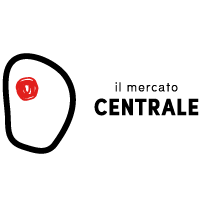According to the survey carried out by Human Company and BVA Doxa, sustainable tourism is a necessity for 8 out of 10 Italians
Human Company has drawn up its first sustainability plan in order to identify the best practices to be implemented in the name of environmental protection, respect for people's wellbeing, and support for unique landscapes. The plan was developed based on an analysis of the tourism sphere, with benchmarking focused on the sustainability initiatives undertaken by the main competitors. According to the results, the sector can generally be considered immature in terms of its approach to sustainability. Drawing on the exclusive data from the survey created by Human Company in collaboration with the BVA Doxa[1] research institute, the plan has allowed the Group to shine a light on consumers' perception of sustainability in the world of tourism, and on the importance of developing sustainability practices in the sector.
THE GROUP'S FIRST SUSTAINABILITY PLAN
The Human Company Group has always been inspired by the outdoors and nature. It is therefore determined to protect the planet and its inhabitants, fostering mutual respect and overall harmony. As a result, the Group set out to draft its first Sustainability Plan based on three fundamental pillars: nature, local communities and people. First and foremost, Human Company is committed to preserving the environmental quality of the locations in which it operates, working in harmony with the features of the landscape and redeveloping sites on a conscientious basis. It is also dedicated to progressively reducing the impacts linked to its activities, limiting the use of natural resources and making its facilities more efficient. The Group's commitment to communicating and collaborating with local community members is also a crucial element of its strategy. These active measures allow it to become a part of the ecosystems surrounding the facilities and create favourable conditions for socio-economic development, in addition to protecting the local heritage: food and wine, unique products, the culture and the landscape.
Finally, it has a strong desire to create an inclusive and family-oriented work environment, defined by a spirit of belonging and sharing, in order to support the psychophysical wellbeing and personal and professional development of each individual, promoting a culture of respect for nature and humanity.Based on these pillars, the Group was able to define several areas of commitment, in line with the Sustainable Development Goals of the 2030 Agenda (sustainable living, responsible lifestyles, responsible supply chains, biodiversity, water management, wellbeing and inclusion, waste management, and the fight against climate change). Additionally, Human Company identified the goals to be implemented during the 2023–2027 five-year period, which include the following: equipping 100% of the mobile homes in the villages with IoT systems to measure and reduce of energy consumption, developing sustainable urbanisation guidelines, and offering nature activities linked to the unique biodiversity of each site or the local environment in 100% of villages. To meet the reference targets, the objective is to involve the Group as a whole, from the employees to the guests of the facilities, by keeping them informed regarding the progress and the actions undertaken and, most importantly, by empowering them on their own sustainability journeys.
"The development of our first Sustainability Plan represents a big step along the Group's path of growth and continuous innovation, in which we are prioritising the environment and human wellbeing. For over 40 years, we have been set apart by our continuous investments to improve our facilities and, above all, by our commitment to supporting people and building strong relationships with the community. We believe that the time to reconnect, work together and take action is upon us, and we are therefore embracing our responsibilities while staying true to the principles and values that have always guided us. By fostering respect and authenticity, we can feel more involved and play an active role in creating a more sustainable future," explained Domenico Montano, General Manager of Human Company.
"The sustainability transition is playing an increasingly central role in the tourism sector; after all, climate change and respect for socio-cultural diversity are some of the most urgent global challenges faced by our society. At Human Company, we believe it is important to create and promote greener and more inclusive tourism. To this end, we drew up our Sustainability Plan according to a practical, all-encompassing, scientific and transparent approach. The plan also has concrete links to specific objectives set by the Group, and a sustainability report will be released every year to describe the extent to which these targets have been achieved," noted Mattia Rosati, Chief Corporate Services Officer of Human Company and Mercato Centrale.
THE SURVEY RESULTS
Sustainable tourism: a real necessity
One of the most striking elements to emerge from the research is that most Italian travellers are prioritising sustainability. In fact, 8 out of 10 respondents described more sustainable and responsible tourism as very important (78%). Additionally, 74% of the people interviewed declared that they were more aware of sustainability issues and more likely to adopt sustainable behaviours and practices during their holidays compared to a few years ago. The respondents recognised the potential of sustainable tourism, as reflected in the pillars of the Human Company plan: sustainability measures can protect the environment (89%), support the development of local communities (88%), and promote people's wellbeing (83%).
Open air: the pinnacle of sustainability
In terms of destinations, over half of the respondents deemed open-air tourism the most sustainable type of tourism (61%). When asked about specific accommodation styles, they rated farm stays (92%), mountain refuges (90%) and campsites/camping villages (85%) as the most sustainable options, offering the opportunity to stay in close contact with nature. According to the survey participants, bed & breakfasts (81%), hostels (75%) and holiday homes (69%) offer a good level of sustainability, while spa facilities (48%), hotels (36%), resorts (30%) and cruise ships (17%) are less sustainable. Additionally, almost all of the travellers interviewed (95%) reported that there is no shortage of sustainable and conscientious options for city holidays. The respondents ranked the most effective sustainable tourism practices as follows: respecting local values and products (50%), choosing more authentic activities and experiences less tied to overtourism (43%), and travelling during the low season (37%).
Characteristics, drivers and appeal of sustainable facilities
In order to assess the most important characteristics of a tourist facility, three dimensions were analysed: the traits that allow it to be defined as sustainable, the aspects that influence travellers' choices before a holiday, and the elements that are most attractive during a stay. On this basis, the most important aspects of a tourist facility for Italian travellers were found to be the use of renewable energy (100%), appreciation of food and wine products (99%), correct waste sorting (98%), and conservation of the natural environment (91%). However, the following characteristics were also deemed important: water saving (88%), the elimination of plastic (87%), the presence of green areas and cycle/pedestrian paths (84%), and public transport services (74%).
Environmental sustainability and personal wellbeing at the fore
In terms of sustainable actions to be taken during stays, three clear priorities emerged: embracing wellbeing and psychophysical relaxation (89%), correct waste recycling according to local regulations (88%), and enjoying contact with nature and the outdoors (86%). Additionally, respondents reported a desire to meet and interact with local communities (76%), to limit water and electricity waste (75%), to stay in destinations that are less mainstream and overcrowded (67%), and to use of sustainable modes of transport during their holidays, such as bicycles, electric vehicles and public transport (60%).
[1]The research, conducted by BVA Doxa in May 2024, involved a sample of over 1,000 adults, representative of the Italian population, who took a trip of at least 3 days for tourism purposes in the last 12 months.



